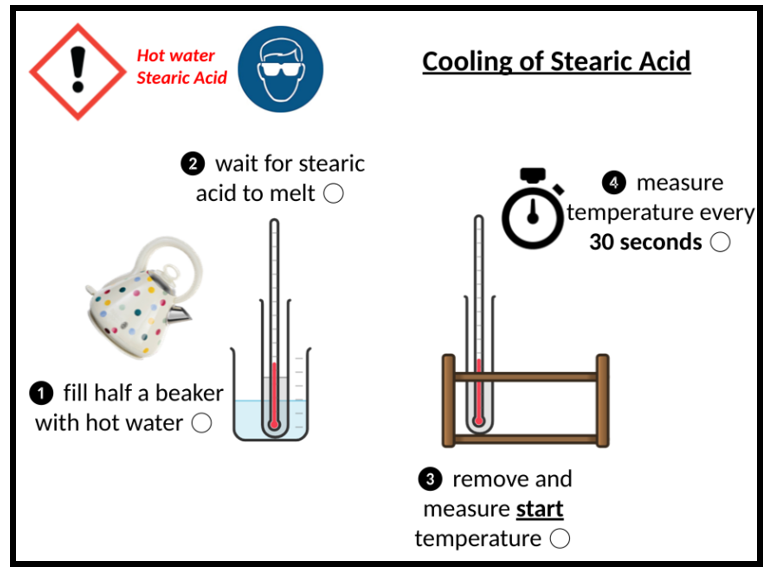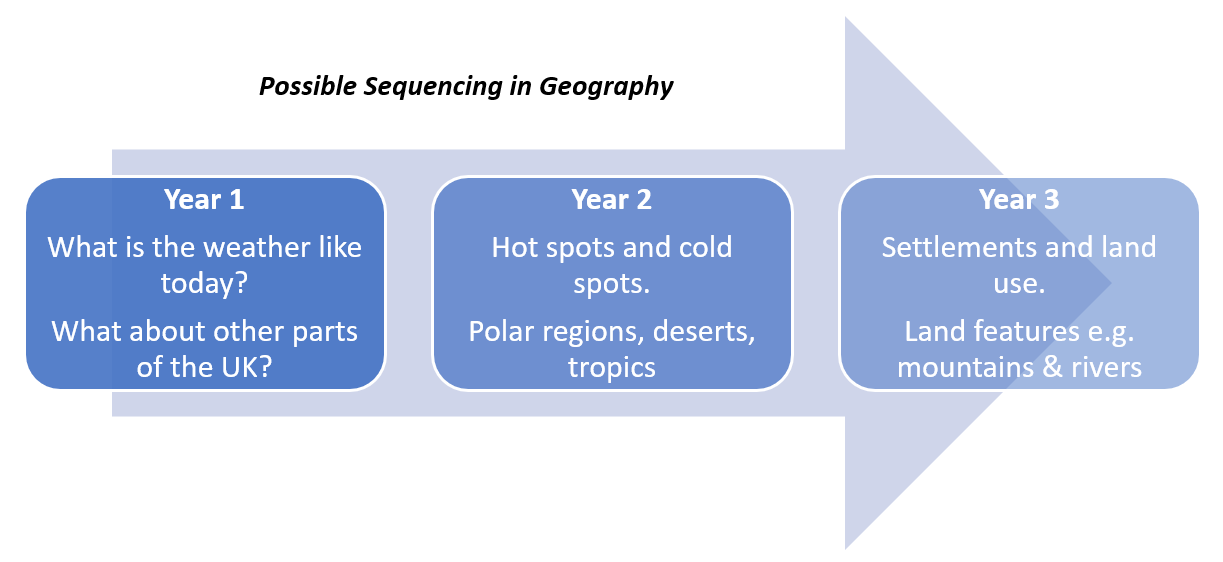Trust Teaching - No 1 - Autumn 2020
Inside This Newsletter…
- Fast Maths – Making Times Tables Stick William Heritage, The Florence Nightingale Academy
- From Kihon to Cognitive Load Alan Lea, Alderman White School
- Start as you mean to go on – the power of Early Years Tracy Hopkins, The Florence Nightingale Academy
- What if every child could have access to personal tuition on demand? Jacqui Banger, Bramcote College
- Science Ambassadors Emma Leonard, Springbank Primary School
- CPD Opportunities CPD at The White Hills Park Trust
As we approach the end of 2020, it’s an uncontroversial view to say that the world of education has been changed beyond recognition in the last year. Some of the changes may prove to be temporary – we all hope that we can soon return to the times when teachers can walk around the class and talk to pupils individually, or when we can share a book without having to disinfectant it first.
Other changes, however, may be longer lasting. The most obvious one is the way that we have started to realise the potential of technology as an integral tool for teaching and learning. We have also thought carefully about the way that learning can be ‘flipped’ and extended beyond the classroom, and we have been reminded of the importance of emotional and mental health in securing excellent pupil progress. The enforced changes to exams and external tests have led to real debates about the long-term future of assessment, not just in staffrooms but among researchers and policy makers.
On a much more local level, it has been a significant year for our Trust. Bringing the Florence Nightingale Academy into the White Hills Park family has given a whole new aspect to our work and will allow us to broaden our view of provision, seeing more clearly how all of our individual parts fit into the same whole. We look forward to this continuing in 2021, as we welcome our new primary schools into the Trust. It has been noticeable that despite all the challenges, professional development in our schools has continued, and in many cases, it has been a year of discovery.
This first edition of ‘Trust Teaching’, our Teaching and Learning newsletter, attempts to capture some of the creativity and passion for teaching that exists across the White Hills Park schools. We have gathered a range of contributions – sharing good practice, action research reports, introductions to our Trust Team - all demonstrating the expertise and willingness to share that we have across our schools. I am very grateful to the contributors, who have shared some of their ideas and reflections, and I hope that it provokes thought and discussion – please feel free to offer feedback and to share widely. I would encourage any of our staff, both teachers and support staff, to consider contributing to our next edition, due at the end of the Spring term.
Thank you for your inspirational work this term – the strength of the White Hills Park Trust lies in its extraordinary team of staff. The not very subtle pun in the title of this newsletter reflects the belief that the way that we make things better for our children is to trust teachers and trust in teaching.
Paul Heery
Fast Maths – Making Times Tables Stick
By William Heritage from The Florence Nightingale Academy, Trust Lead on Maths
With the introduction of the Multiplication check in Year 4, times tables are vital for the understanding of Mathematics. The ability to recall and have fluency with number facts allows pupils to complete more complex problems and have more confidence in their understanding of Maths. However, times tables can be seen as difficult or cumbersome, relying on slower methods of calculation instead of quick recall. In the past, pupils have explained to me that they find multiplication and division facts difficult to remember or boring to learn. To overcome this negativity, there are many methods of practicing times tables to keep children’s engagement high. At the Florence Nightingale Academy, we want our children to be fluent and confident with their multiplication and division facts. We aim to promote this through various strategies.
Primarily, pupils from Year 2 to Year 6 take part in ‘Fast Maths’. This scheme reinforces the need for the quick recall of number facts using blank multiplication 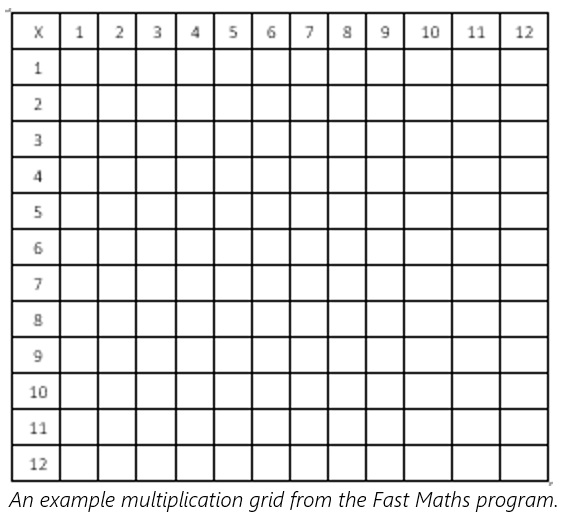
Since implementing the Fast Maths program at least three times a week, we have seen pupils’ ability to recall multiplication facts improve. Interestingly, pupils are excited to complete their table as fast as they can and are eager to beat their individual times. However, the program still allows for further adaptation. Year 2 pupils completed grids for their 2-, 5- and 10-times tables until they no longer required the aid of a multiplication square. A new times table would be added and celebrated with a certificate. This allowed confident pupils to not be held back. Instead, pupils would make links and practice harder multiplications, ready for Key Stage 2. Also, it motivated pupils of all abilities to complete their current times tables soon as possible. Finally, a class scoreboard was displayed on our working wall to make times tables important in the classroom. 
The multiple strategies we use have made times tables more visual and prominent across the whole school. Engagement from staff and pupils, and the celebrations of success, have made this topic more fun and not as intimidating which will only improve understanding of Mathematics.
From Kihon to Cognitive Load
By Alan Lea from Alderman White School, Trust Lead on Secondary Science
In the study of the martial art karate there is the practice of “kihon” at the start of every session. Kihon is a Japanese word which roughly translates as “basics”. However, if you observe (in real life or on YouTube) a black belt completing their “basic” training you would realise just how misleading the term is. They can fluently complete combinations which are often a dozen moves long involving punches, kicks, blocks, stance changes, not to mention co-ordination, speed, timing, and spatial awareness. Ask a white belt to complete the same combinations and the result would be far less impressive. In essence they would experience cognitive overload.
I am often surprised at how closely my study of karate links into my career in teaching. The question of “how does a white belt achieve the fluency of a black belt?” translates as “how do my pupils achieve mastery in my subject?”. One obvious answer is practice (and lots of it!), but in karate we also develop fundamental ideas and logically sequence movements, so students have enough working memory to successfully perform the techniques. In our classrooms our pupils’ working memory is taken up by a whole host of thoughts, only a proportion of which will be concentrated on what we are teaching. Their cognitive load is added to by the level of conceptual demand of what we are teaching and the extraneous load which can be caused by poorly designed or presented materials. In order to maximise working memory and aid the learning process it is important to minimise the extraneous load on our pupils. Here are three key tips:
1. Avoiding Split-Attention
Working memory is taken up if pupils must look at labels which are separate to a diagram or if instructions for practical work are written separately. By integrating instructions clearly with diagrams in subjects like science & technology, attention is freed up to focus either on physical skills required or a more detailed understanding of a process. This is particularly important when introducing new equipment or if a process is very complex. Instructions can be printed as a tick sheet to help pupils develop more independence during practical work.
2. Sequencing of Concepts
Understanding how concepts are linked together to provide a logical order will make it easier for our pupils to make those connections too. As teachers we may find it easy to jump between different concepts, but we must try to remember what it was like learning our subjects for the first time. For example, can we expect our pupils to understand the rise of Hitler in Germany without understanding the importance of the Treaty of Versailles? In science, it is essential that pupils understand ions before they can explain electrolysis. We should also consider how we activate prior learning of our pupils to help them build connections.
3. Guided Practice
We are the black belts in our classroom. Just as a white belt may look in awe when a black belt performs complicated sequences, our pupils will be impressed (or at least confused!) when we solve a particularly challenging problem. It is important to clearly model our problem-solving processes for our pupils and provide them with multiple examples so they can identify patterns in our process. Scaffolding problems before removing support will help pupils move to independent practice and more demanding problems. The same idea can be applied to model new language. For example, giving several examples of how to use a new key word before asking pupils to use it in their own contexts.
These are just a few suggestions. However, I believe the first step is to reflect on your subject area with colleagues to highlight areas in your subject that place a high cognitive load on your pupils.
Start as You Mean to Go On – The Power of Early Years
By Tracy Hopkins from The Florence Nightingale Academy, Trust Lead on Early Years
 My name is Tracy Hopkins and I am currently an Assistant Head Teacher and EYFS lead at The Florence Nightingale Academy. I joined The Florence team at the start of the 2020 academic year and have settled in really quickly due to the amazing team at the school.
My name is Tracy Hopkins and I am currently an Assistant Head Teacher and EYFS lead at The Florence Nightingale Academy. I joined The Florence team at the start of the 2020 academic year and have settled in really quickly due to the amazing team at the school.
I have worked in Early Years for over 22 years in a range of roles such as Nursery Manager, Lecturer and Ofsted Inspector. I worked at my previous school for 4 years and led the Early Years team to an outstanding Ofsted judgement in 2018. I was then promoted to Assistant Head to cover a maternity leave and following this, I decided that the time was right for a new challenge. Why not start a new role in the middle of a global pandemic? (and in the middle of major house renovations - Now living at the in-laws with the husband, our 2 children and 3 guinea pigs!!)
The White Hills Park Trust is a trust that appeals to me because of the ethos of promoting child-centred learning. My desire is to make Early Years stand out: for the world to know that this stage in the children's lives is the most important. We are shaping the youngest children's future - what a responsibility that is!! I truly believe that the EYFS can influence the teaching and learning in KS1, KS2 and even KS3 and beyond by developing the characteristics of effective learning. Humans are born with an inbuilt drive to learn more about the world around us and if we want children to thrive in our complicated world, we need to teach them how to think. Promoting creativity and critical thinking is a fundamental part of our planning in Early Years. It is important that we begin with an environment that is stimulating, varied and safe where children can play, explore and learn. Through open-ended activities and new experiences, we are providing opportunities for children to be able to plan and make decisions about how to approach an activity. They develop the skills to review how well things have gone and to choose a different approach should the first one prove unsuccessful. Children develop resilience and begin to consider how they might have approach a task differently for an even better result. Through this they will develop a reflective approach to their learning and will maximise opportunities. The way we teach in Early Years relies on the skilful use of many different strategies: communicating and modelling language; showing, explaining, demonstrating, exploring ideas; encouraging, questioning, recalling; providing a narrative for what they are doing; facilitating and setting challenges - to name a few! I believe that a classroom ethos and organisation with enquiry at its heart is an effective one, where purposeful talk dominates and teachers ask fewer questions to encourage sustained shared thinking. We never stop learning!
I’ll end my introduction there as I could go on and on! I hope that all my colleagues at The Florence Nightingale Academy and across the trust have a lovely, relaxing break over the festive period and I hope to meet some of you very soon.
What If Every Child Could Have Access to Personal Tuition on Demand?
By Jacqui Banger from Bramcote College, Trust Lead on Blended Learning
Every day we face the challenge of providing ‘quality first teaching’ which meets the needs of every student in the lesson. Differentiating work to provide adequate support and challenge, which allows all to make rapid progress, is an art.
Many have looked to the emergence of technology to solve this problem. Initially there was a significant focus on the development of online learning courses. These were developed and students were placed in large IT classrooms/labs and asked to work independently. As you would expect this was not successful, as a purely online teaching model it is unable to meet the social and motivational needs of the students. This then led to the development of a blended learning approach.
Blended learning is the term given to the approach where you mesh learning via digital means, with active learning methods. Its aim is to improve the experience and outcomes of all students. A lesson with a blended learning design will use face to face teaching time for activities that most benefit from direct instruction, for example a discussion, role play or an experiment involving chemicals. The remaining learning time will provide opportunities for independent study or group work and the ability to learn bitesize chunks of information typically in a digital format. This approach provides access to personal tuition on demand, with technology designed to deliver new knowledge in a way that allows students to move through learning at their own pace, which can reduce cognitive load and improve metacognition. There are many different models of blended learning, including station rotation, split, lab and mastery models, as well as the more well-known flipped learning model
Blended Learning; 3 key components
• Face to face learning activities facilitated by the teacher
• Digital learning objects often bite size chunks of information
• Structured independent study time guided by the face-to-face teaching experience
There is no set formula that defines how much of each type of blended learning is needed for a lesson to be successful. The amount of blend may vary from session to session, depending on various unique factors. One thing that is clear is that, if anything, in a blending learning model the teacher matters even more than normal. The teacher needs to orchestrate the complex learning environment. They must select the most appropriate computer applications, manage the learning, and focus on the skills that the computer cannot teach - motivation, analysis, evaluation, and active learning.
It’s important to remember that the computer is simply a tool for the delivery of an element of content or assessment. It is not a replacement for a motivated and engaging teacher. On a positive level, it does provide an opportunity for a student to work at his or her own pace and both builds in thinking time and helps to encourage independent learning. However, its true value lies in the ability to offer immediate feedback and to inform teaching practice to ensure that a student’s needs are met more effectively when face to face teaching resumes.
In delivering blended learning, it is important that we do not make assumptions. Not every student will want to learn via computer or have the tools or ability to do so. It is essential that we take time to prepare and communicate to students the value of this style of learning and support them with it.
If we truly want to embed the blended learning model within the WHP Trust, then we must have courage in our conviction. By empowering teachers so they have the skills and confidence to experiment and find the best practice, we can, and will, build consensus. At the same time, we must work on the mindset of the students and their parents, so they understand and genuinely believe that the work done on the computer will make a difference and be valued. Finally, and perhaps most crucially, we must continue to invest in infrastructure to ensure that everyone has access to high quality technology and technical support.
A blended learning model has the power to support a shift in educational design, which allows all students to have access to their own personal tutor. This ability to personalise allows all to make more rapid progress and fulfil their potential.
Science Ambassadors
By Emma Leonard from Springbank Primary School, Trust Lead on Primary Science
My name is Emma Leonard and I have recently been appointed as one of the Trust Leads for Science. I hope to be working with many of you over the coming year. I would like to introduce you to the idea of Science ambassadors.
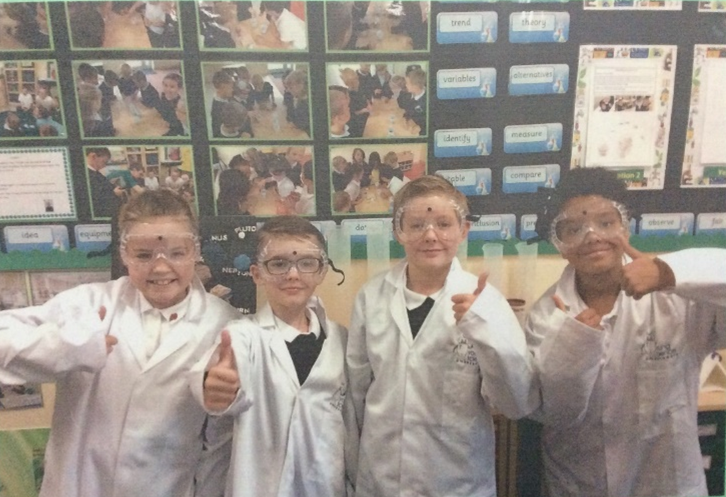 What is a Science Ambassador?
What is a Science Ambassador?
A Science Ambassador is a child / young person who shows a real passion for Science. A pupil who extends their Science knowledge at home as well as at school. Currently at Springbank, we have 4 trained Science Ambassadors. The children received training from STEAM adult ambassadors –a company who focus on building children’s confidence and skills to lead a subject.
The children from Springbank completed their training in our Phiz lab (a dedicated Science laboratory) alongside other children from settings across Nottinghamshire. Working together gave all the children a breadth of ideas and collective passion and enthusiasm for Science.
The event created a real tangible buzz - by the end they were fired up to lead Science sessions. During the training, the children were expected to present a range of experiments to their peers. They had to describe the science processes behind the investigations, explain results and make conclusions.
The children who wanted to become Science Ambassadors also completed an application form explaining why they thought they would be a good candidate and should be considered to become an ambassador. This encouraged a lot of deep thought about the qualities they possessed.
The application system got children to think carefully about Science and what it really means to them. It also got them to think about subjects they would like to study in depth at Secondary school.
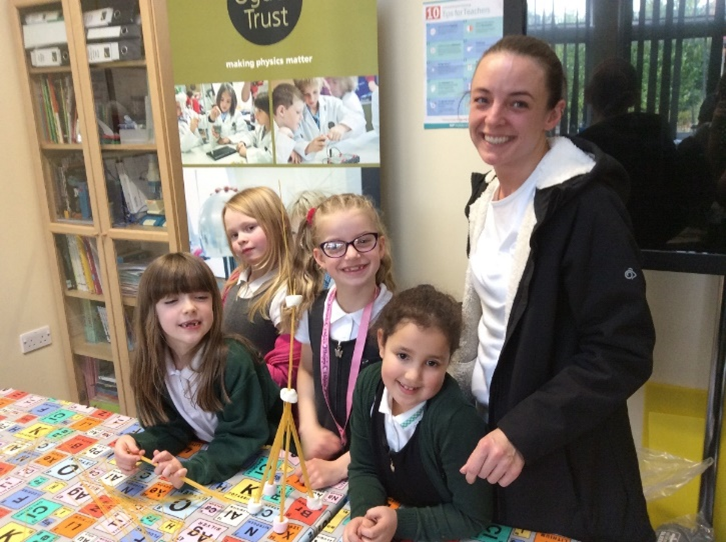 Who would make a good Science Ambassador?
Who would make a good Science Ambassador?
The Science Ambassadors should be upper KS2 / KS4 as the aim is to inspire other children in the school, particularly the younger ones. They need to possess the leadership qualities to take charge of Science sessions and enthuse others.
What do the Science Ambassadors do?
The Science Ambassadors work closely with Science leaders in school. They help run after school study support clubs. They also have ownership of dinner time Science clubs. The annual Science week is led by ambassadors. They work with the school leadership team to plan the type of investigations they think will enhance learning in Science. The children lead their own learning and this makes it so much more powerful and relevant to them. Memorable learning.
Why should we have Science Ambassadors in our schools?
I would advise any school to train their own Science ambassadors as it gives children / young people ownership of their learning. It raises the profile of Science, because it is driven by the children and it grows an excitement and love for Science. The confidence of the children builds and those who have become ambassadors show their understanding of Science on a deeper level. This is inspirational. Attainment is raised and children enjoy their learning as they have peers to support and motivate. Let me know if you are interested in starting a team of ambassadors – they do make a difference.
CPD at The White Hills Park Trust
The role of the Trust is to support our academies in their mission to provide the very best opportunities for young people, and the desire for continual improvement is central to this mission. Our strength comes in the collective knowledge and expertise that we share. Our Academy Improvement Strategy recognises that our academies have differing capacities, but all have something to offer.
CPD is delivered through a range of methods, depending on the needs of the cohort and structure of the module. These include face-to-face large group training sessions, remote online learning, one to one and small group support, and courses delivered using the WHP CPD Hub app. Access to the app is provided for all employees of WHP academies. It provides a wide range of online courses, including courses bespoke to WHP. Courses can be used as standalone modules, as part of a wider programme, or can be linked to performance management objectives / school improvement priorities.
We also extend the CPD offer to colleagues beyond the Trust. We believe we have much to offer and much to learn. There will be a small charge for non-WHP schools to cover admin, hospitality and resources.
|
Teaching and Learning |
||
|
Teaching and Learning Briefings |
All Teaching staff |
Weekly updates emailed to all staff |
|
Research and Inquiry Groups |
Open to all staff |
Groups across academies carry out supported action research projects on a topic of relevance / interest |
|
Annual Conference |
All staff |
Summer term themed educational conference for all WHP staff |
|
Discussions and Debates |
All staff |
Access to regular research-based articles and reflections with an opportunity to contribute to these for individuals |
|
Safeguarding |
All staff |
Regular updates for all staff including shared materials and statutory training, including annual KCSiE update |
|
Trust Teaching |
All staff |
Termly newsletter to celebrate CPD achievements, share professional learning from Trust staff and advertise events |
|
Primary Maths Development |
Primary Teachers |
Practitioner-led Maths network to support the development of Maths across academies |
|
Support and Coaching |
||
|
Teaching Excellence Programme |
Expert teachers |
A programme of observations, following a ‘Lesson Study’ approach, including planning and reflection opportunities |
|
Shadowing / Mentoring programme |
Aspiring leaders |
Paired good practice visits and reflections with a leader from another school in order to understand their role |
|
Individual Coaching Programme |
Teaching staff |
More intensive support for members of staff to improve and reflect on the quality of their teaching |
|
CPD Programmes |
||
|
Newly / Recently Qualified Teacher Programme |
NQTs / RQTs |
A network of NQTs and RQTs in order to provide a peer support network, with sessions tailored to need. |
|
Leadership Development Programme (NPQ) |
Aspiring Leaders |
A programme of National Professional Qualifications (NPQs) aimed at all levels of aspiring and new leaders |
|
Teaching Assistant Development Programme |
TAs |
Annual development programme aimed at TAs in all phases and roles |
|
Support Staff Development Programme |
Support Staff |
Annual development programme consisting of modules targeted at the range of support staff roles in the Trust |
|
Governor Development Programme |
Governors / Trustees |
Development programme combining bespoke training with targeted modules and Trust-wide sessions |
|
New staff Induction programme |
New staff |
A supportive structure which ensures Trust staff feel welcome and introduced effectively into their new post. |

